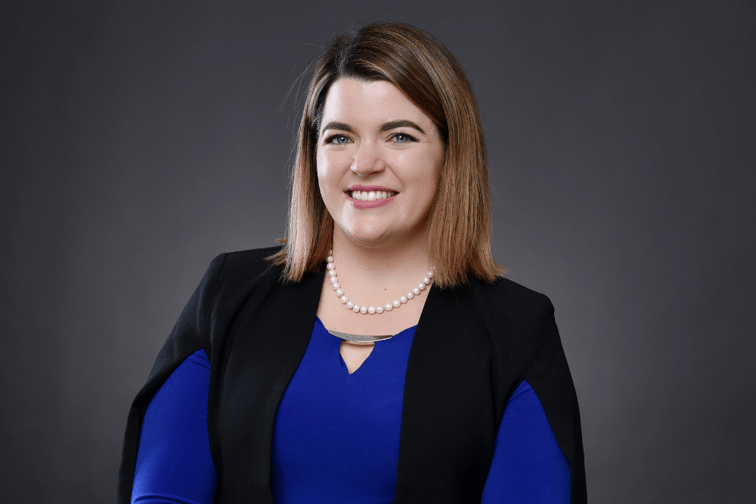

When Insurance Business suggested to Marsh’s Caitlin Carson (pictured above) that today’s push for gender equity is much less about stopping sexists and much more about encouraging women to step up, she agreed.
“Absolutely,” said the Melbourne based VIC state practice leader for FINPRO who also co-chairs the Women and Allies of Marsh resource group.
Carson is leading the international brokerage’s involvement in the upcoming Women in Insurance Summit in Sydney on August 24. Marsh is the event partner at the Summit which returns this year as a face-to-face event to further IB’s ongoing mission to recognise, celebrate and promote diversity across the insurance profession.
The Summit was designed to encourage a wider representation of women in senior executive roles, overcome bias, break down leadership barriers and share strategies for building a diverse and inclusive workforce.
Read more: The industry’s outstanding gender issues
“It’s not fundamentally just men’s fault, and I’m not suggesting it’s a woman’s fault, but there is plenty of research out there that will tell you that women won’t put themselves up for a job unless they think they’re 100% qualified,” said Carson.
She said this research shows that men put themselves forward even when they’re only 50% qualified.
“Women are also less likely to negotiate for their salaries,” she said.
Carson said this is an issue partly because women haven’t necessarily put their hands up or had the confidence to push for salary equity with men.
“So it’s [the push for equity today] about giving that confidence to women and giving those tools to women to be able to go and do that, and feel like they are able to do that and entitled to do that, because they question that a lot more than their male counterparts,” said Carson.
One factor that’s playing into this issue, she said, is imposter syndrome.
“It’s not a clinical psychological term but it refers to people who get into a certain position, say in their career, and they feel like they’ve done that by luck or by chance and that they are going to be found out for being not as good as everyone else thinks they are,” said Carson.
She said lots of women talk about suffering imposter syndrome and so do men.
“So essentially it’s a feeling of huge insecurity,” she said.
Carson said that Marsh is trying to give everyone ways of addressing insecurities like this.
The Women and Allies co-chair said gender equity is also about ensuring that systems and processes are equitable and that individuals have the support they personally need to succeed. “Rather than simply treating everyone the same, since any inherent bias in the process may naturally allow one group an advantage over another,” she added.
Carson said a frontline in the quest for gender equity is convincing industry colleagues who don’t see gender and inclusion as issues anymore, that they still are. She said on numerous occasions she still hears these people contend that when they advertise a job the gender of the applicants makes no difference. Carson argues that this misses the point.
“Essentially women need to be engaged differently and encouraged differently,” she said. “We need to make sure that there’s transparency around how roles are offered and how decisions are made around certain roles as part of engaging them differently.”
One other concrete issue that still needs resolution, she said, is equality of pay.
“I definitely think it’s an issue that’s still being worked on,” said Carson. “Marsh is doing a lot to try and be more transparent and has made significant investments to address the issue over recent years, but I don’t think anyone in the industry could say that we’re 100% there yet.”
Not all of the gender issues require balancing in favour of women. Across many companies, including in the insurance industry, parental leave is still biased against men. Dad or Partner Pay in Australia only lasts for two weeks and while both men and women can request up to 52 weeks of unpaid parental leave, not many companies give it.
“I’m actually really proud to say that Marsh offers equal parental leave for all genders,” said Carson. “So, we acknowledge as a group that it’s not just about trying to support women upwards, it’s actually also about making sure men have the same opportunities as well and if that is taking some time to raise their kids, they should be getting the same benefits as females.”
Marsh, she said, also provides all employees with training on unconscious bias and avoiding assumptions about the career aspirations of a person or their suitability for a job because of their family circumstances.
“Again, we’re not all the way there yet, but we’re definitely heading in the right direction!” she said.
Last year, said Carson, Marsh held its first annual Diversity and Inclusion Awards to recognize and reward behaviours in the workplace that the firm sees as critical for the inclusivity journey.
At the upcoming Women’s Summit in Sydney highlights include presentations on innovation and digital transformation, personal branding, hybrid management strategies, inclusive decision making and mental wellness at the executive level.
Kimberley Jonsson, CEO of CHU Underwriting Agencies is giving the keynote speech, Women leading the way – Inclusive decision-making. The talk will examine how the willingness to be inclusive in decision-making practices can transform a would-be CEO into a more effective leader.
Sylvia Quang, a partner at HWL Ebsworth Lawyers and also president of the NSW Committee of Young Insurance Professionals (YIP), will give the opening remarks and run a speed networking session.
Sponsors include Arnie, Brooklyn Underwriting, EstImage, Flynn Builders, Innovation Group and Sparke Helmore Lawyers.
The 2022 Women in Insurance Summit will take place at the Amora Hotel Jamison Sydney on August 24. The summit will feature a range of powerful keynote sessions, workshops, networking activities, presentations and panel discussions led by influential leaders from the industry on the issues that matter most. You can register for the summit here.
